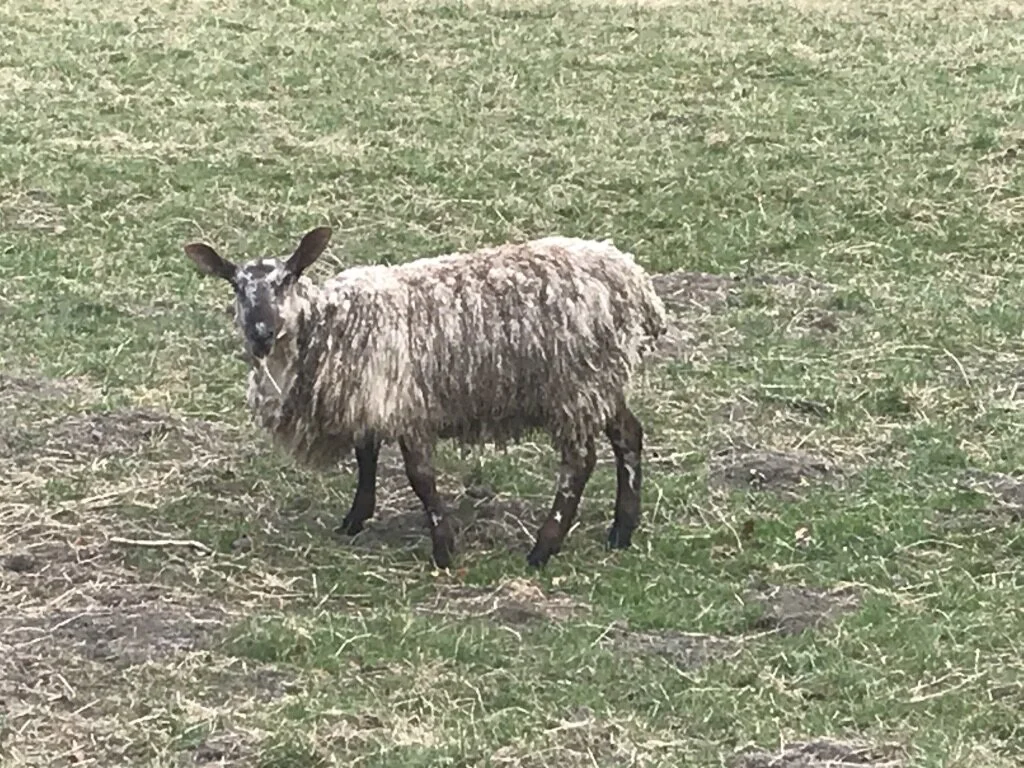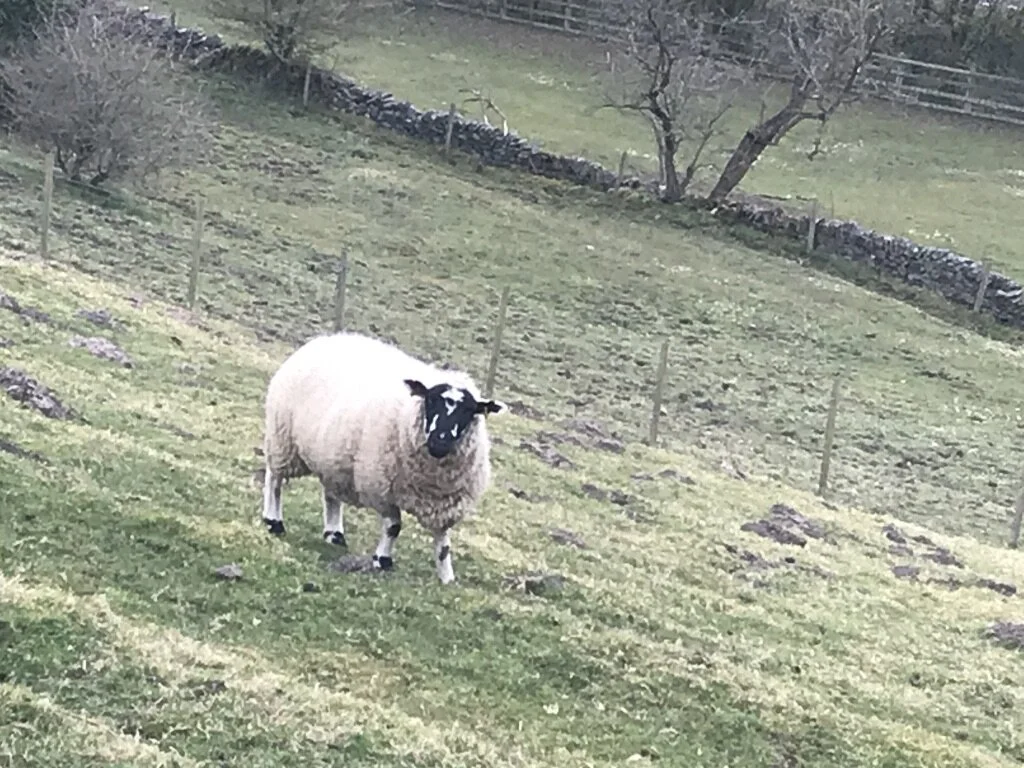Manchester Diaries Five
Manchester Diary Five
Early April 2020
The time of Coronavirus.
Being in lockdown in the English countryside could be far worse, though yesterday morning brought light snow flurries. Cloudy skies, mostly gray. There were a few days of cold sunshine earlier, enough to make for planting seeds in the greenhouse in front of the cottage and preparing the vegetable beds, muddy and weedy as they were. Seeds have sprouted, but the bed-soil remains cold. A bit too much season optimism by a person from southern California. However, this led to the discovery of stinging nettles. Stinging nettle soup is delicious. All that is needed is an onion, a carrot, a potato, and some butter or olive oil. The nettles can be very dirty, so they need to be rinsed many times so they are not gritty (using rubber gloves!!). Standard procedure: sauté an onion, add the cut-up carrot and potato, cook in some water (broth is better), until soft. Add the nettles for 10 minutes, salt, pepper, and blend. YUM.
A reduced circumference life makes me think of Thoreau and Walden Pond. No doubt not a very big body of water, his patience and cultivated powers of observation (and perhaps a bit of imagination too), enabled him to observe the passing of the seasons recording the detail of change in vegetation, temperature, subtle water differences and fauna. Here I attempt to cultivate those qualities. What is going on with the weeds along the road? Who is new? Who is senescent? What is flowering? And where are those sheep? Which ones are pregnant (and how can I really tell??), though it is lambing season. Why does one farmer mix breeds – black with white heads, white with black heads and curling horns around the ears) and others not? What about the people down the road with 11 horses on what is no more the 10 acres, all beaten to a pulp? That is a lot of horses.
Corvids are building nests in tree hollows along the road, several different ones in the same tree with the several hollows. It’s like a corvid hotel. The trees are old and in bad shape, lots of hollows and walking under the branches is a daily risk, they are disease ridden and look dangerous, likely to fall in the next strong wind storm. But the birds are happy. Other birds, and there are colorful ones, are busy too, but more discrete, smaller, fliting about quickly and much harder to follow for the untrained bird watcher. Nice to hear birdsong at dawn and dusk, also during the day, but I don’t notice as much since I am ‘working.’
Working while sheltering in place during such a novel set of circumstances is challenging. The internet is constantly feeding stories (often redundant), but addicting. Figuring online shopping is yet another activity – where to source the next supply of olive oil, or chocolate? How about that soap bar or hair product? It goes on and on. And there is the issue of getting access to books, so e-books, articles on line, endless. What is the carbon footprint of our nearly 24/7 online activities? The Zooms, Facetimes. Skypes, Cisco web meeting, Bluejeans, Microsoft meetings, each demanding the download of another software package eating up storage space at giant MB chunks at a time, indispensable to participate in the modern age, then requiring more RAM, more storage, a new more powerful computer. Not to mention Spotify, which has undermined the ability of musicians to make a living, but is so extraordinary at home. We are committed to a path that seems hard to change, and is invisibly energy intensive. But perhaps this time shows us ways to triage energy use –prioritize these media for social engagement over driving fossil fueled autos and flying. But the energetics of these media still need more quantification, and they lack the true tactile joy and peril of face to face interactions. They still mask the subtleties, the whole-body reactions, the eyerolls or expressions of surprise or delight. How do people walk into the room or exit? Are they fidgeting? What are they doing with their hands, their feet or legs? Well, its certainly better than a disembodied phone call, and more immediate than a letter! At the same time, when you do reach out for some help, like tech help for the phone or a credit card, or to order something, people are eager to talk, to share a story, to go the extra mile to solve a problem. It seems that they may be slightly liberated from being measured by how many customers a minute they can serve, and can then joke and interact. Slowing down, not having everything be reduced to money. How nice.
So, back to being in place in the English countryside in early April. For a Southern Californian, the season moves terribly slowly. Trees are starting to bud leaves, some of them. The days are definitely longer, and the daffodils seem interminable. Exciting for a couple of weeks, a month of them seems a bit much. Can’t anything else seem to do well? Crocus is ephemeral, not a good picking flower, for sure. There are a few trees in flower. But I think that what all this points to is a lack of biodiversity out here in the High Peak, a compression into what is able to survive with high human populations and grazing pressure. If I knew more, I might see there is more than brambles, nettle, dandelion and an odd mix of old vestigial trees and a hodge podge of firs that people have planted randomly.
People are taking the Corona virus pretty seriously out here. Good and consistent social distancing, merchants are delivering, lots of hand washing and sanitizer activity. People walk their dogs. The Brits have very identifiable dog preferences: labradors are very common, then there are the various spaniels, lots of those, some terriers and other unidentifiable small dogs. They are allowed everywhere and can be a bit disruptive in pubs and restaurants. There are doggy bags littering the paths everywhere, one has to wonder if the plastic bags that are used to contain the defecation are more environmentally sound than just leaving the defecation on the ground. . . these confounding life cycle issues of modern day life puzzle the brain on the walks around here.
The UK has engaged in a semi-set of precautions for Corona virus, but we are early on in the sheltering in place. . . At first Boris Johnson seemed to want the virus to whip through the population, extinguishing itself and the vulnerable. Now that he is stricken, it seems there are more stringent measures being in place. Even mid-March, the universities were open, and so were public schools until late March. There are huge concerns about the ability of the NHS to cope after 2 -3 decades of savage cuts. At the same time, they will treat for no cost, anyone who walks in. It is in times like this that the conservative government’s campaign against government services – as we know too well in the US -- reveals itself as petty, mean and self serving, shoveling government resources to an increasingly narrow group in the private sector. Who can Donald Trump turn to now but the ‘deep state’ for the expertise needed to cope? Well, maybe Walmart, as it has a deep state of its own, but its not organized in the public interest. Damn. It turns out that bureaucratic expertise is important to make things happen, happen well, consistently, and thoroughly. When you cut it in the name of, say, governance with loosely coordinated public/private partnerships, you lose the ability to ACT. Ah, but it may have great process, lots of consultation.
It is quite astonishing how much the state has gotten diminished over the decades since the Reagan Thatcher Revolution, whose aim was simply to turn over the assets of the people to those in the private sector. In the UK, the selling off of the public domain starting before even Thatcher, but greatly accelerated since, and with astonishing effectiveness. For all the conservatives’ vituperation against state intervention, they are remarkably adept at forcing the hand of local governments and others to fall into compliance with new mandates, setting new constraints here and there that make it all but impossible to say no. All in the name of greater land use efficiency by new private sector owners than the public sector could provide. But efficiency for what? For whom? And by what measure? Apparently, no consistent set of measures or reporting have been applied here in the UK, simply the belief that the private sector would be more effective and efficient, and the ROI would be higher. Seems weird. One needs to ask, what for? An ideological mission, purely and simply, regardless of consequences, just like the cutting of the NHS budget, or even BBC. The interesting thing here is the lack of local power. Everything seems to hinge on Westminster. Its an odd paradox that the economy becomes so liberalized, but power is so centralized.
So, lock down. Walking up and down the road and the two hills for some cardio exercise and aerating of the brain. Trying to notice the nuance and the details, the snails’ pace of the arriving of spring, the quality of the smell and the air, the difference between February snow flurries and those of late March. Thoreau was so much better equipped than I who am glued to a monitor and the internet, to my books and articles, and to the news, such as it is. This is a challenging moment to recalibrate one’s daily life, to learn to reflect and just let time go by without worrying about whether one is ‘wasting’ time. To observe and feel. To cook and eat, to be slow. Not get in the train, plane or car. To learn about solitude. We shun it generally. But learning to keep one’s company is not a bad thing, challenging though it may be.


